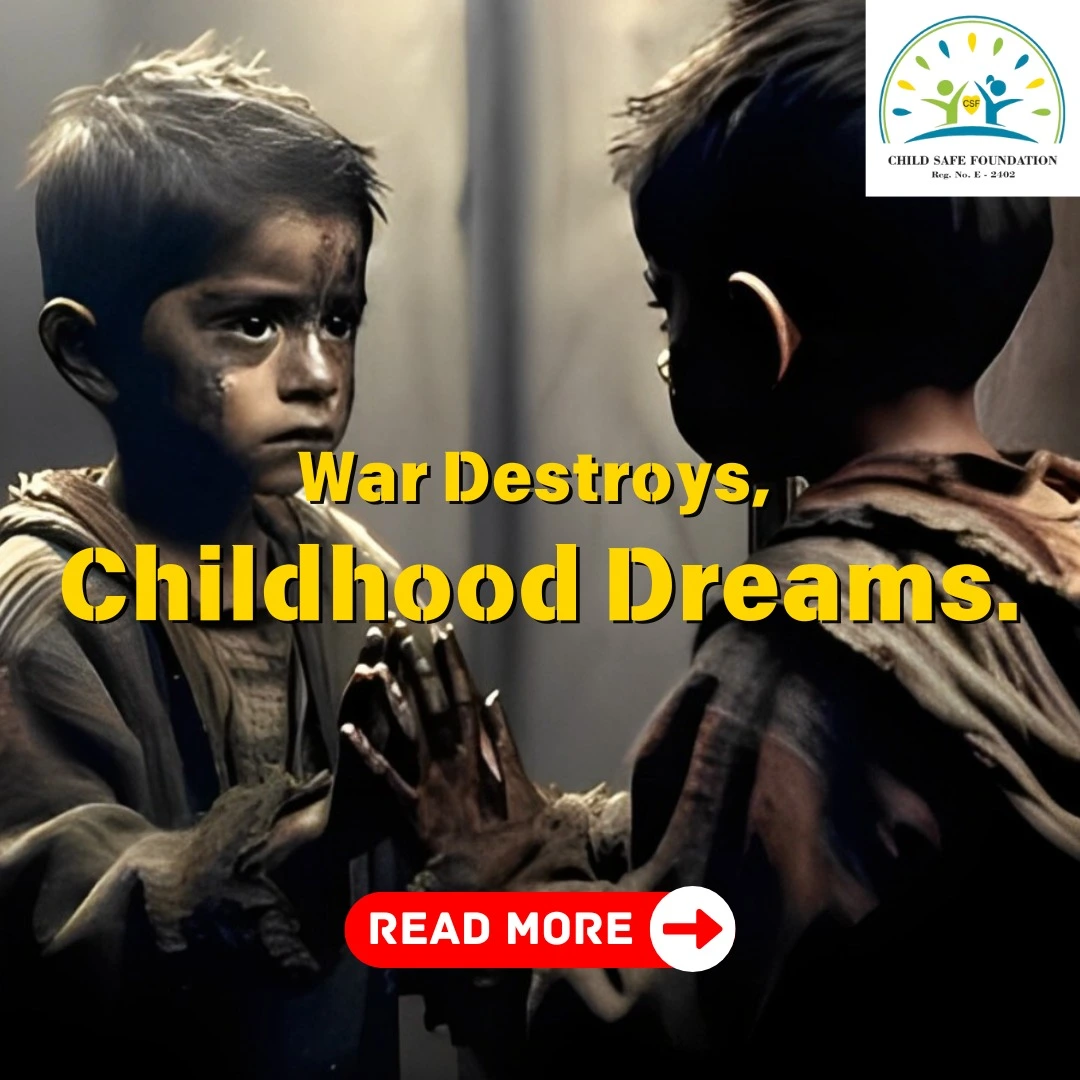War is a catastrophic event that disrupts lives, particularly affecting children, who are often the most vulnerable victims. The devastating impact of war on children extends far beyond the battlefield, leaving deep emotional and physical scars on young lives. According to UNICEF, millions of children are currently out of school due to conflicts, significantly affecting their education and future prospects. Additionally, many face psychological trauma, which can lead to long-lasting mental health issues.
At Child Safe Foundation, we explore the multifaceted impact of war on children, highlighting key areas of concern such as mental health, education disruption, and the increased risk of recruitment into armed groups. Our goal is to raise awareness and advocate for protecting and supporting children caught in the crossfire of conflict.
1. Psychological Trauma
One of the most immediate and profound effects of war on children is psychological trauma. Exposure to violence, displacement, and loss can lead to severe mental health issues, including anxiety, depression, and post-traumatic stress disorder (PTSD). According to research by the American Psychological Association, children in war zones exhibit significantly higher rates of psychological distress compared to their peers in peaceful regions. The trauma experienced during these formative years can have lasting effects on their emotional and mental health.
2. Disruption of Education
War disrupts access to education, which is crucial for children’s development. Schools may be destroyed, repurposed for military use, or become too dangerous to attend. UNICEF reports that millions of children are out of school due to armed conflict. This lack of education hinders their learning and limits their future opportunities and social development. Education provides a sense of normalcy and stability, which is often stripped away during times of war.
3. Physical Health Risks
Children in conflict zones face significant health risks due to disrupted healthcare services and inadequate nutrition. The World Health Organization has highlighted the increased incidence of malnutrition and disease in these regions. Without access to proper healthcare, vaccinations, and nutritious food, children are at risk of severe health complications that can affect their growth and development.

4. Recruitment into Armed Groups
In many conflict areas, children are forcibly recruited into armed groups or may take up arms themselves. This exposure to violence not only endangers their lives but also impacts their psychological and social development. The recruitment of child soldiers is a violation of international law, yet it remains a grim reality in various regions around the world.
5. Family Separation
Wars often lead to family separations, with children losing their parents or being displaced from their homes. The trauma of losing a parent or being uprooted from familiar surroundings can create feelings of isolation and abandonment. This loss can devastate their emotional well-being and sense of security.
6. Social and Economic Disruption
Armed conflict disrupts the social fabric of communities, leading to increased poverty and instability. Children growing up in such environments face long-term challenges related to a lack of opportunities, education, and social unrest. The economic fallout from war often means that families cannot provide for their basic needs, further exacerbating the cycle of poverty and hardship.
Conclusion
The impact of war on children is devastating and far-reaching. The psychological, educational, physical, and social ramifications create a cycle of trauma and deprivation that can last a lifetime. As we strive to address these challenges, it is imperative that we advocate for peace, support humanitarian efforts, and ensure that children’s rights are protected in conflict zones.
Tags: Child Right, Children, mental health, Risks, War“The greatest casualties of war are always children.” — Harrowing Truths
